Setting a deadline transforms vague aspirations into achievable targets. Deadlines create a sense of urgency, pushing individuals to prioritize tasks and stay focused on their objectives. Without a clear timeframe, goals can drift, making it easy to lose motivation or postpone action.
Moreover, deadlines foster accountability, encouraging consistent progress and preventing procrastination. They provide a measurable benchmark to track advancements and celebrate milestones along the way. By establishing a specific endpoint, individuals can better manage their time, allocate resources effectively, and maintain momentum toward success.
Understanding the purpose of setting deadlines is crucial for effective goal attainment. This article explores how deadlines can enhance productivity, focus, and overall achievement.
Goal Deadlines
Setting deadlines transforms goals from abstract ideas into actionable plans. Deadlines provide structure, ensuring tasks align with the overall objective.
The Role Of Time Constraints
Time constraints define the period available to achieve a goal. They enable better time management by allocating specific intervals for each task. Limited time promotes efficient resource use, reducing idle periods. For example, a project deadline of three months breaks down the workload into weekly milestones. Time constraints also prevent scope creep, maintaining focus on essential activities.
How Deadlines Influence Motivation
Deadlines boost motivation by creating a sense of urgency. They encourage consistent effort, preventing procrastination and enhancing productivity. Specific deadlines offer clear targets, making progress measurable. For instance, a sales target by year-end drives daily sales activities. Additionally, deadlines facilitate accountability, as individuals track their advancements against set timelines.
Benefits Of Setting Deadlines
Setting deadlines offers numerous advantages that facilitate goal achievement. These benefits enhance overall efficiency and effectiveness in pursuing objectives.
Enhancing Focus And Productivity
Deadlines sharpen focus by defining clear timeframes for task completion. When individuals have specific deadlines, they prioritize essential activities over less critical ones. For example, a project with a two-week deadline ensures that team members allocate sufficient time to complete each phase without unnecessary delays. Additionally, deadlines minimize distractions, allowing individuals to concentrate on their tasks and increase productivity. Studies show that setting deadlines can boost productivity by up to 30%, as it creates a structured environment that drives consistent effort and timely results.
Promoting Accountability
Deadlines foster accountability by establishing clear expectations and responsibilities. When a deadline is set, individuals recognize their obligation to meet the target, which encourages them to take ownership of their work. For instance, in a corporate setting, employees with specific project deadlines are more likely to stay committed and deliver quality results on time. Furthermore, deadlines facilitate tracking progress, making it easier to identify and address any delays or obstacles promptly. This accountability not only enhances individual performance but also contributes to the overall success of the team and organization.
Strategies For Effective Deadline Setting
Effective deadline setting enhances goal achievement by providing clear guidelines and measurable targets.
SMART Goals Framework
Implementing the SMART framework ensures deadlines are well-defined and attainable:
- Specific: Clearly outline the goal with precise details.
- Measurable: Establish criteria to track progress and completion.
- Achievable: Set realistic deadlines based on available resources.
- Relevant: Align deadlines with broader objectives and priorities.
- Time-bound: Assign a specific timeframe for goal completion.
- Evaluate Capacity: Assess available resources and time to determine feasible deadlines.
- Incorporate Buffer Time: Include extra time to accommodate unforeseen obstacles.
- Adjust Based on Progress: Monitor advancements and adjust deadlines as necessary to maintain momentum.
- Set Incremental Milestones: Break larger goals into smaller tasks with individual deadlines to ensure steady progress.
Common Pitfalls In Setting Deadlines
Unrealistic Timeframes
Setting deadlines that are too short increases stress levels. When timeframes are unattainable, individuals miss targets, reducing motivation and productivity. For example, assigning a two-hour deadline to complete a detailed report compromises quality.
Lack of Flexibility
Rigid deadlines ignore potential obstacles, hindering progress when challenges emerge. Without flexibility, unforeseen issues disrupt timelines. For instance, not including buffer time can delay project completion if unexpected problems arise.
Vague Deadlines
Deadlines without specific dates create ambiguity, making prioritization difficult. Without clear end dates, tasks extend indefinitely, affecting overall progress. For example, setting a deadline like “next week” without a specific day lacks precision.
Ignoring Capacity
Failing to evaluate available resources leads to overcommitment, causing missed deadlines. When workload exceeds capacity, quality declines, and deadlines become unmanageable. For example, assigning multiple high-priority tasks to one team member overwhelms their schedule.
Poor Communication
Unclear deadlines result in misunderstandings and misalignment among team members. Effective communication ensures everyone understands the timeline and their responsibilities. For example, not specifying whether a deadline is flexible or fixed affects task execution.
Overlooking Incremental Milestones
Neglecting smaller milestones disrupts progress tracking, making large goals overwhelming. Breaking goals into manageable steps provides checkpoints and maintains momentum. For example, aiming to complete a project without interim deadlines hampers consistent advancement.
Failure to Adjust Deadlines
Ignoring progress and failing to adjust deadlines as needed lead to stagnation. When circumstances change, updating deadlines ensures continued relevance and feasibility. For instance, sticking to an initial deadline despite significant project scope changes causes delays.
Overemphasis on Deadlines
Focusing solely on deadlines undermines the importance of the quality of work. When deadlines take precedence over thoroughness, the final output suffers. For example, rushing to meet a deadline results in errors and subpar deliverables.
Inadequate Planning
Skipping detailed planning before setting deadlines creates unrealistic expectations. Without a clear plan, estimating the required time accurately is challenging. For example, setting a deadline for a complex task without outlining necessary steps leads to incomplete work.
Ignoring Team Input
Setting deadlines without consulting the team disregards their insights and constraints. Collaborative deadline setting ensures feasibility and buy-in from all members. For example, imposing a deadline based on assumptions rather than team feedback results in resistance and delays.
Progressing Towards Goals
Setting deadlines turns intentions into actionable plans. It drives focus and accountability, fostering steady progress toward goals. Embracing well-defined timeframes can significantly boost productivity and success. Whether working individually or with a team, deadlines serve as essential tools for managing time effectively and maintaining momentum. By integrating strategic deadline setting, they can navigate challenges more efficiently and reach their objectives with confidence.

